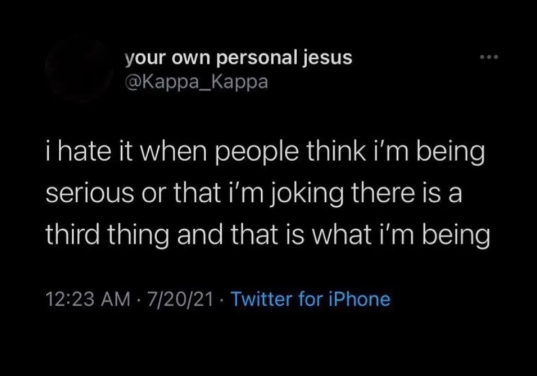TikTok obsolescense

Why I’m writing about a tweet though, is the way I found it. Like pretty much every funny internet thing I see these days, it came from TikTok. I think some of that comes from the fact that I never made the very effortful decision to curate my Twitter feed into something that reflected my humor. I didn’t really use Twitter for a long time, and now I’m sure as hell not using it. TikTok, though, takes the work of curation off your plate.
What’s the trade-off? Lots, but what’s interested me lately is what happens when I think to myself, “wow that TikTok tweet slideshow was funny, I should track it down.” If I didn’t like it, this is a tremendous task. Even if I did like it, it’s not a cinch. It’s the black box problem: I probably couldn’t interpret how TikTok classifies my interests in the first place, so attaching any kind of tag to it would be useless. The Spotification thing again, but this time with no whip-smart music sages to name genres. (And how would you even name a genre of TikTok?)
I’ve seen some scuttlebutt about the fact that TikTok’s search function is awful — sometimes misleading since the introduction of auto-generated suggested search — but I don’t have a strong grip on why. I know Reddit has a similar problem. There, the issue is a) Google is just way too good at search and b) users are really bad at usefully tagging their own posts.
And thank god they are by the way! SEO is internet poison!
Going into the search function, or even liked videos beyond the 24 hour turnaround between liking a video and then sending it to your group chat, feels like being somewhere you’re not supposed to be. Nothing on TikTok was meant to live that long. Planned obsolence underpins the app’s entire model, for trends and conversations rather than technology.
TikTok’s culture is what’s designed to fail, over and over again, at a fast enough frame rate that it looks like a still image.
TikTok obsolescense Read More »

